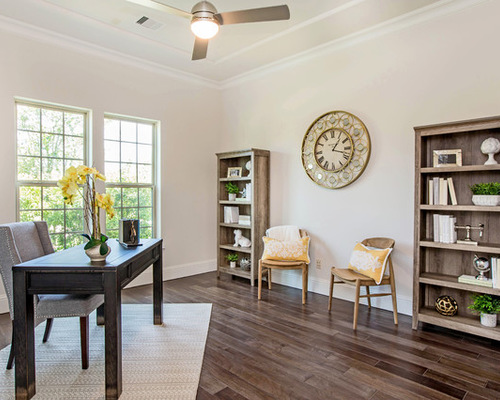
Q. I am a first time home buyer, and have been pre-approved for a $255,000 mortgage purchase. In my search, I have seen a number of houses in the $300,000 – $500,000 range in good, move-in condition. The problem I am having is where to start my offer. My realtor is telling me that those houses are priced too high, but that no one there will sell their house for under $300,000. What do you recommend?
A. I have to ask you two preliminary questions first.
Are you approved for a mortgage in the amount of $255,000 or for a home purchase in that amount. If you have been approved for a $255,000 mortgage, that means that you can probably buy a house worth at least 10 percent more. Most lenders will lend you up to 90 percent of the purchase price; some will lend you even more. Check this out with your lender to make sure you understand exactly what you have been qualified to purchase.
Second, you used the words “my realtor.” Is the real estate agent or broker really your agent? Have you signed a “buyer broker” arrangement with him or her? If not, it is important that you keep in mind that the broker (Realtor) really represents the seller. If the realtor knows your mortgage limit, he/she is duty bound to disclose that information to the seller. And you certainly do not want the seller to know exactly how much you are prepared — and able — to obtain a mortgage loan.
And even if the broker claims to represent your interests only, my suggestion is to keep the lender’s information to yourself. If you are able to sign a contract, then you can provide the letter from your lender. Many standard contracts state that “Purchaser will provide seller, within three business days after ratification of the contract, with a letter from a legitimate lending institution indicating purchaser’s ability to obtain a loan.”
This is known in the trade as a “comfort letter”. It is not a formal loan commitment; the lender has to review the sales contract and have the property appraised before such a final commitment can be made. However, it does mean that a lender has reviewed your financial history and based solely on that history, believes that you are qualified for the loan.
Thus, whether or not the realtor is your agent, I strongly suggest that you keep silent on your mortgage availability. You should also not divulge to anyone (other than your family or your lawyer) what your top price will be.
In answer to your question, as this column has suggested on many occasions, everything in real estate is negotiable. Don’t be afraid of making a low offer. The real estate agent is obligated to transmit your offer — regardless of amount — to the seller.
The seller has three choices:
- Your offer can be accepted, in which case you have a contract;
- Your offer can be rejected in its entirety. In this case, you can either make a new — higher — offer or walk away from this house; or
- Your offer can be counter-offered. This means that the seller is rejecting your proposal, but is putting a new offer on the table. Keep in mind that if you receive a counter-offer, you then have the same three alternatives just described.
Let’s look at the following example: the seller is asking $300,000 for the house. You prepare a written offer in the amount of $245,500. The real estate agent submits it to the seller, who in turn counters for $290,000. The ball then goes back to your court.
How much do you really want to pay for your new home? Is this property really worth $290,000? Should you try to make another — lower — offer or should you accept the seller’s proposal? These are questions that only you can answer — even if you can afford the higher price.
However, by reducing the price, the seller has sent you a signal. The price is negotiable. If this is the house you really must have, and clearly if you can afford it, you may want to accept the counteroffer. But, as you know, there are many other houses out there, and if you are prepared to continue shopping around if you lose this house, I recommend that you make yet another counter-offer — this time in the amount of $255,000.
The negotiations will continue until someone takes a hard-line position and “draws a line in the sand.” One of you will ultimately say “this is my final offer; take it or leave it.”
It should also be noted that price is but one of the many items of negotiation in a real estate transaction. Often, a seller may be more interested in the timing of the settlement than in the price. For example, does the seller have to sell immediately and are you prepared to settle quickly. I have negotiated many a deal whereby purchasers received a very favorable sales price because they were prepared to go to settlement just 10 or 15 days after the contract was signed.
On the other hand, some sellers may want to stay in the house for several more months. Are you prepared to wait? Are you prepared to purchase the house now — so as to preserve a favorable mortgage interest rate and begin to get the tax benefits of homeownership — but allow the seller to stay in your new house on a “post occupancy agreement” arrangement? In effect, you purchase the house and the sellers pay you rent until they move out. The rent should be equivalent to the monthly mortgage payments you make (principal, interest, taxes and insurance — also known as PITI).
Another important factor to consider is whether the seller is willing to take back financing — either for the full amount of the purchase price or a small second trust. This is an issue which should be explored with the seller before you make an offer; once a sales contract is entered into, it may be too late to try to renegotiate that contract. You also have to get your lender’s approval if the seller is prepared to take back financing.
In the final analysis, once you have decided to purchase your new home — and have zeroed in on the neighborhood you want — don’t be pressured into buying a home. Shop around, check prices, and negotiate everything.
Realtors — whether they be buyer’s brokers or seller’s agents — will tell you that this is a hot market, and that if you do not put in a contract for the full price, you will lose the house. That may be true. But if you can only afford a lesser-priced house, nothing ventured, nothing gained. The worst case is that your offer will be flatly rejected.
Written by Benny L. Kass








